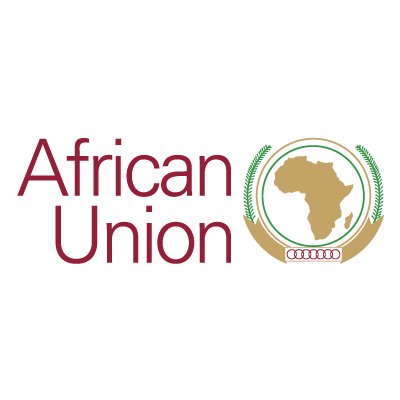African Union Welcomes Doha Ceasefire Agreement Between DRC and M23 Movement
To enhance transparency and ensure credibility, the mechanism will include observer participation from the State of Qatar, the United States of America, and the African Union.

- Country:
- Ethiopia
In a major diplomatic breakthrough for the Great Lakes region of Africa, the Chairperson of the African Union Commission (AUC), H.E. Mr. Mahmoud Ali Youssouf, has welcomed the signing of a landmark agreement in Doha, State of Qatar, between the Government of the Democratic Republic of the Congo (DRC) and the Congo River Alliance (M23 Movement). The accord establishes a formal mechanism to supervise and verify the implementation of a permanent ceasefire, marking a critical step toward lasting peace in eastern Congo and the wider region.
A Landmark Agreement for Peace
The agreement, signed under the auspices of Qatar's mediation, stems directly from the "Doha Declaration of Principles" reached on July 19, 2025, which laid the foundation for renewed dialogue between the warring parties. The declaration emphasized non-violence, territorial integrity, and regional cooperation as guiding tenets for peace.
This latest accord goes further, creating a supervisory and verification mechanism to oversee the permanent ceasefire between the DRC government and the M23 Movement — a group whose insurgency has destabilized parts of eastern Congo for years. The new mechanism is expected to monitor compliance, investigate alleged ceasefire violations, and facilitate communication between parties to prevent renewed conflict.
International Oversight and Confidence-Building
To enhance transparency and ensure credibility, the mechanism will include observer participation from the State of Qatar, the United States of America, and the African Union. This multilateral involvement is designed to build trust among stakeholders and ensure impartial monitoring of the ceasefire's enforcement.
According to the AU Commission, the participation of these observer nations and institutions reflects a strong international commitment to stabilizing the region. It will also provide technical and logistical support to the mechanism's functioning, including early warning systems, joint verification missions, and on-the-ground peacebuilding initiatives.
AU Commends Regional and International Partners
Chairperson Mahmoud Ali Youssouf expressed the African Union's profound gratitude to the State of Qatar for its "pivotal facilitation role" in bringing the two sides together for structured peace talks. He also acknowledged the United States, the Republic of Angola, and the Republic of Togo for their constructive diplomatic and logistical contributions throughout the negotiation process.
Qatar's mediation, in particular, has been widely praised as a neutral and effective platform for dialogue, with Doha increasingly emerging as a hub for regional and international peace diplomacy.
A Step Toward Lasting Stability in the Great Lakes Region
The DRC has long struggled with instability in its mineral-rich eastern provinces, where multiple armed groups — including the M23 — have operated for decades. Despite various peace efforts, violence has persisted, displacing millions of civilians and threatening regional security.
The signing of this agreement represents a turning point in regional peace efforts and is viewed as a confidence-building measure that could pave the way for broader political reconciliation. The verification mechanism, by promoting transparency and accountability, aims to rebuild trust among conflicting parties and local communities.
The African Union, in collaboration with the East African Community (EAC) and the Southern African Development Community (SADC), has been actively engaged in supporting stabilization efforts in the region. The new mechanism is expected to complement existing regional frameworks, such as the Nairobi and Luanda processes, which seek to address both military and political dimensions of the crisis.
Toward a Comprehensive Political Settlement
The AUC Chairperson underscored that the establishment of this mechanism is not merely a ceasefire tool but a foundation for a comprehensive political settlement. He emphasized that sustainable peace requires addressing the root causes of conflict — including issues of governance, security sector reform, economic marginalization, and cross-border tensions.
In this context, the African Union has pledged to continue supporting both the DRC government and the M23 in transitioning from confrontation to dialogue, with a focus on reconciliation, reconstruction, and regional cooperation.
Regional and Global Reactions
Diplomatic sources from the region and beyond have welcomed the agreement as a "breakthrough moment" after years of intermittent violence and failed truces. The United States lauded Qatar's role in mediation and reiterated its support for African-led peace initiatives. Meanwhile, Angola and Togo, both instrumental in regional peace diplomacy, reaffirmed their commitment to assist in implementation and monitoring.
Observers also view the Doha agreement as an opportunity to align regional actors — including Rwanda, Uganda, and Burundi — toward a cooperative framework that addresses security and humanitarian concerns in eastern Congo.
A Path Toward Hope and Renewal
The African Union Commission called the agreement "a historic milestone in the collective pursuit of peace, stability, and cooperation in the Great Lakes region." It reaffirmed that the Union will continue to work with all stakeholders to ensure effective implementation, protection of civilians, and promotion of dialogue-based conflict resolution.
As the verification mechanism becomes operational in the coming months, the focus will be on ensuring that all parties honor their commitments and that the ceasefire leads to a meaningful peace process. The AU's vision remains clear — a peaceful, united, and prosperous Africa, where disputes are resolved through diplomacy and dialogue rather than violence.









